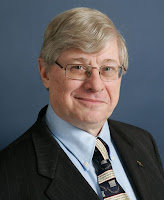In 1964, a young woman named Kitty Genovese was stabbed to death outside her apartment building in Queens, New York. She was attacked repeatedly over the course of an hour and despite her screams, none of the 38 neighbors intervened or called for help. Some were afraid. Some didn’t want to get involved. Some thought someone else would do it.
This incident has become a symbol of the increased callousness, self-centeredness, and fearfulness of a society where brutes, bullies, and other bad guys act without worry of interference from onlookers.
The long array of billion-dollar scandals rocking corporate America, for example, is not so much the result of growing hordes of clever scoundrels as it is the product of passive complicity of innocent people who are willing to look the other way to protect their job, their relationship with the boss, or incentive compensation.
The moral root of the issue is responsibility. As Edmund Burke said, “All that is necessary for evil to triumph is for good people to do nothing.”
I don’t think we have the obligation to put ourselves at risk to right every single wrong we witness, but we should be willing to do so when the consequences are serious and we are accountable for creating an environment that is hostile, not accommodating, to illegal and unethical conduct.
The duty of responsibility requires both good sense and courage to help us avoid the extremes of doing nothing and trying to do everything. One thing’s certain, though: the world will be better if we’d all do a little more.
Editor's note: This article first appeared in the Capital City Free Press on May 2, 2015.
About the author: Michael Josephson is one of the nation’s most sought-after and quoted ethicists. Founder and president of Josephson Institute and its CHARACTER COUNTS! project, he has conducted programs for more than 100,000 leaders in government, business, education, sports, law enforcement, journalism, law, and the military. Josephson is also an award-winning radio commentator.
This article was published by the Josephson Institute.



No comments:
Post a Comment